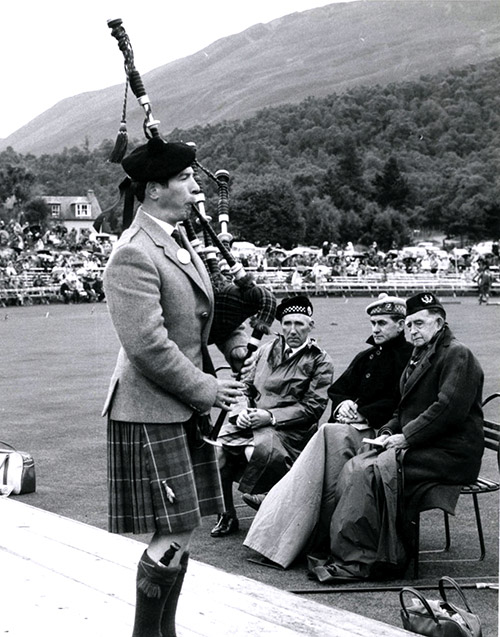

At what age should a judge retire? In the pipe band world this is set at 75. After that, irrespective of your health, it is time to hang up the clipboard. No more standing in the rain listening to 30 Grade 4b performances and other such delights these dedicated professionals have to endure on the bands’ behalf.
No, it’s straight into the armchair with a bag of peppermints and re-runs of YouTube videos of the Worlds I’m afraid and thanks for the memory. Is this right? Two adjudicators that I know of have had to call it quits this year and they are very fit individuals, brains and hearing as sharp as ever. Should not retirement be predicated on fitness for the job?
The problem with that is when you get someone who clearly can’t hack it round the circle any more – but thinks he can. A major championship is a long day, with perhaps juvenile grades in the morning and then a senior grade later and all of it spent on your feet in all sorts of weathers.
A tap on the shoulder and a word in the shell-like from the adjudicator management board produces the opposite effect than that desired. Instead of resignedly accepting the inevitable, the judge concerned contacts his lawyer and his doctor – not necessarily in that order.
[wds id=”2″]
‘Who do they think they are telling me I’m not up to it,’ is the likely opening line. Suddenly the RSPBA has a major problem on its hands; a judge whose faculties are failing but whose stubborn self-belief and consequent high dudgeon clouds the creaking reality that is as plain as pie to everyone else.
We could also have the scenario whereby an individual loses it aged only 70 but is allowed to continue on a rocky path of inconsistency for another five years. Presumably the management board would spot this and could at least steer him away from the majors.

That aside, I can see the need for a simple cut off point but that doesn’t help the fit men who clearly are still on the ball physically and mentally at 75+. Isn’t there some way of accommodating all that knowledge and experience; a dispensation of a couple of years whereby they are allowed to continue adjudicating until the panel thinks they should call it a day with no appeal or legal recourse when that happens? Remember, today’s 75 is the new 65. We’re living longer; just ask the pensions people.
In the solo scene, in Scotland at least, you can go on adjudicating forever. Unless you actually repeatedly fall asleep on the bench or keel over half way through the Gold Medal it seems the judge’s pencil is yours for as long as you want it. Is this wise? After all, judging a solo contest can be a much more drawn out affair than any single band contest – in Gold and Silver Medals maybe 12 hours of near continuous concentration.
The three-man bench is always a safeguard I suppose but I wonder if it is time for a review. I am told the late James Campbell, Kilberry, refused to judge after the age of 75, this even though he had the sharpest mind ever to grace a piping contest – right to the end of his days too. I suppose my point about the health of the individual is the crucial one and in the solo world promoters will soon know when to stop the invites to anyone who is obviously failing. Word travels fast.
Judging, bands or solo, can be an exhausting business but it is an opportunity for those whose playing days are over to put something back into a game they have derived a lifetime of pleasure from. Being invited on to a bench can, in return, bestow prestige and honour on those chosen to preside over Grade 1 at the Worlds or maybe the ‘big’ MSR at Oban or Gold Medal at Inverness.

It does not come without risk. Listen to the chat in any band hall or beer tent and you will see that a thick skin is required. And it is not pleasant when a top piper such as Roderick MacLeod of the National Piping Centre refuses to play for you as happened to me at the Uist & Barra earlier this year. As I said at the time he clearly thought me either incompetent or corrupt or a combination of both and was happy for the public to know it.[polldaddy poll=9879967]
Yet if there are no judges there can be no competitions. Promoters and organisers can and do show concern for the welfare of their adjudicators and that includes making sure facilities are up to scratch and a long day is made as comfortable as possible.
In addition that duty of care should extend to providing an opportunity for judges to continue to contribute to the music as long as they are physically and mentally able to do so – but also to point the way to the fireside for those whose time is up.
[wds id=”3″]



















Recent Comments